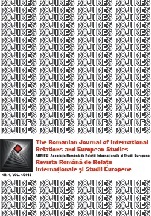30 Years of Regionalization in France. What Lessons for Romania?
30 Years of Regionalization in France. What Lessons for Romania?
Author(s): Natalia CugleşanSubject(s): Politics / Political Sciences
Published by: Editura Universitatii din Oradea
Keywords: local autonomy; regional decentralization; governance; inter-communal cooperation institutions; development regions; constitutional revision
Summary/Abstract: The concept of governance conveys not only the idea of representative democracy, but also that of participatory democracy and promotes the pluralism of actors in the decision-making. Decentralization is a process that allows an increase in the visibility of subnational actors in order to identify and solve the problems of local/regional communities. This paper describes the main stages of the modernization of local and regional public administration in France through transfer of important competencies to the regional level, newly created following the decentralization reform, and to the local level represented by the departments and the municipalities. The competencies of the regions as new territorial collectivities established on the grounds of the Deferre Law and their cooperation with the state is the focal point of this study. Romania as a unitary state can replicate the reforms that proved efficient in the process of regional decentralization in France. The lessons for Romania concern the transfer of competencies to the regional governing councils, and their relations with the state and with existing administrative units for the purpose of meeting Romania’s objectives focusing on economic development and the mitigation of regional disparities.
Journal: Revista Română de Relatii Internationale si Studii Europene (ROJIRES)
- Issue Year: 2/2013
- Issue No: 1
- Page Range: 107-138
- Page Count: 31
- Language: English
- Content File-PDF

